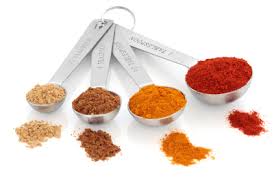ingredient
英 [ɪnˈɡriː.di.ənt]
美 [ɪnˈɡriː.di.ənt]
- n. 原料;要素;组成部分
- adj. 构成组成部分的
使用频率:

记忆方法
记住“ingredient”的方法是将其分解为“ing”和“redient”。想象一个“ing”像是搅拌棒,在厨房里搅拌“redient”,即一个“ing”在搅拌“ingredient”,暗示了这个词与混合、组合成某个整体有关,如同食谱中不可或缺的成分。
以上内容由AI生成, 仅供参考和借鉴
中文词源
ingredient 成份,因素
in-,进入,使,-gred,走,层级,词源同grade,degree.即走进去的,成为其中一部分的,引申词义成份,因素。
英语词源
- ingredient
-
ingredient: [15] The -gredi- of ingredient represents the Latin verb gradī ‘step, go’ (whose past participial stem gress- has given English aggression, congress, digress, etc). From it was formed ingredī ‘go in, enter’, whose present participle ingrediēns became English ingredient. The word’s etymological meaning is thus ‘that which “enters into” a mixture’. It was originally used mainly with reference to medicines, and its current application to food recipes seems to be a comparatively recent development.
=> aggression, congress, grade, gradual - ingredient (n.)
- early 15c., from Latin ingredientem (nominative ingrediens) "that which enters into" (a compound, recipe, etc.), present participle of ingredi "go in, enter," from in- "in" (see in- (2)) + gradi "to step, go" (see grade (n.)).
权威例句
- 1. The active ingredient in some of the mouthwashes was simply detergent.
- 某些漱口剂中的有效成分只不过是洗涤剂而已。
- 2. Speed is the essential ingredient of all athletics.
- 速度是所有田径运动项目的关键要素。
- 3. Coconut is a basic ingredient for many curries.
- 椰子是多种咖喱菜的基本成分。
- 4. The Australian team had the added ingredient of perseverance.
- 澳大利亚队另外还具备了顽强的意志.
- 5. Vulgarity is a very important ingredient in life.
- 庸俗是生活中非常必要的作料.
